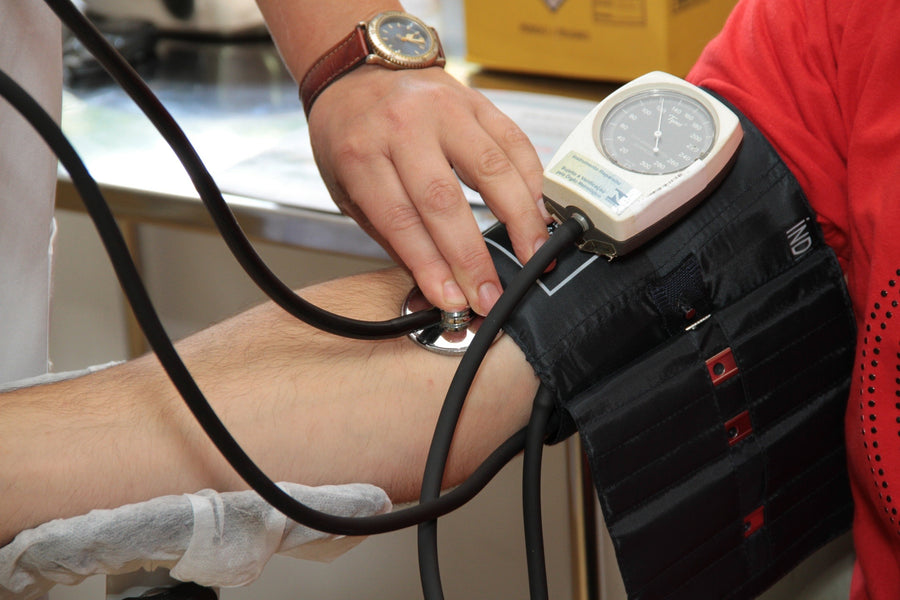
I am sometimes asked, either from patients or by email, whether genetic testing or extensive blood tests can help determine which vitamins or supplements one should take. I have also received spam emails encouraging me to recommend genetic testing for patients. One such email claimed, "Our company does DNA tests of 90 genetic markers and we provide a comprehensive personalized report that includes nutrient, exercise and lifestyle recommendations based on the client's genotype. We also do a comprehensive micronutrient panel that tests genetic markers linked to the body's predisposition to absorbing vitamins and minerals in the client's diet."
My opinion: Such tests are bogus. Of course there are some genetic conditions that influence the absorption or metabolism of vitamins and minerals in the body, but these conditions are rare and the average person will have no benefit undergoing such testing, not to mention the reliability or accuracy of the testing done by such companies that promote by email.
As to blood tests to determine vitamin and mineral levels, an argument can be made for some such as vitamin D levels, B12, and others when specific medical problems are suspected. I am not a proponent of casual routine testing for vitamin or mineral levels unless there is a clinical symptom or sign that makes a physician suspicious that there is a deficiency or a metabolic disorder. I am a big believer in a thorough medical history, family history, including a full review of one's dietary habits, stress levels, sun exposure, exercise habits, sleep patterns, alcohol, tobacco or drug use (in a nonjudgmental manner) and a full physical exam. In the vast majority of cases this thorough review (which can take a lot of a doctor's time), leads more useful information than random blood tests. Unfortunately our medical system does not reimburse doctors for taking so much time with a patient and hence patients are often sent for blood tests as a shortcut.
One additional point I would like to mention is that even when blood tests are done, the recommendations of doctors can vary. For instance if a slightly low levels of vitamin D is found in the blood test one doctor may suggest 400 units, another 1,000 units, and still others 2,000 or 5,000 units a day. Medicine is still an art rather that a science. Many people think that blood tests give definitive answers, but this is not always the case. In some cases much harm can result from testing... an example follows below.
Near Fatal Experience as a Result of Routine Testing for Testosterone Levels
"I was healthy until I fainted and was taken to the emergency room. They said my heart was beating irregularly and I had a heart attack," revealed a 60 year old new male patient who consulted with me a few weeks after being discharged from the hospital. He was referred to me by a close friend. He continued, "Before my heart attack I had gone to a highly regarded university doctor for a routine exam. He did a few blood studies and told me I had borderline low testosterone levels and suggested testosterone injections twice a month. At first I noticed a great boost in energy levels and libido, and a good sense of wellbeing. But, after a few weeks I started feeling heart palpitations and having trouble sleeping at night. Then, one evening, I was watching TV with my wife and then the next thing I remember I woke up and found myself in the emergency room."
Extensive testing at the hospital showed his coronary arteries to be open and healthy and the cardiologists could not explain why he had a heart attack. He had told them he was on testosterone injections but none of the hospital doctors mentioned that there could be a relation. After reviewing all the medical information that he had provided to me, my conclusion was that his heart attack could be related to his testosterone injections. Studies over the past few years have found such a connection. I recommended he stop any further hormone treatment. It has now been over a year and he has not had any heart palpitations. I cannot be 100 percent certain that the hormone injections were the cause, but there is a very high likelihood that this was the case. If so, it shows how routine testing can sometimes lead to a treatment that ultimately causes more harm than good. Read more about testosterone.
My intent is not to say testing for testosterone levels or other blood tests is a bad idea, but just to point out that not all testing results in good outcomes.








